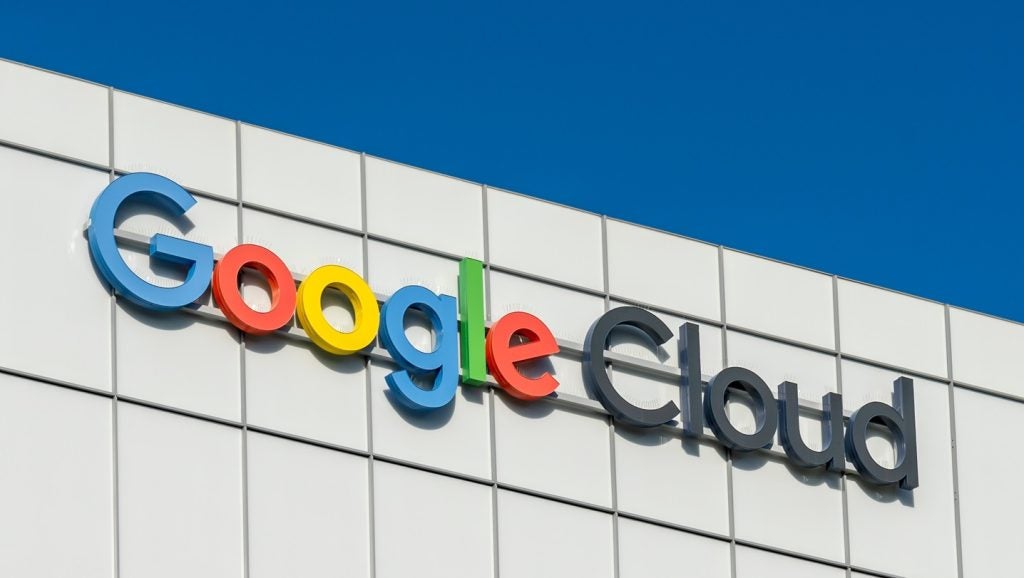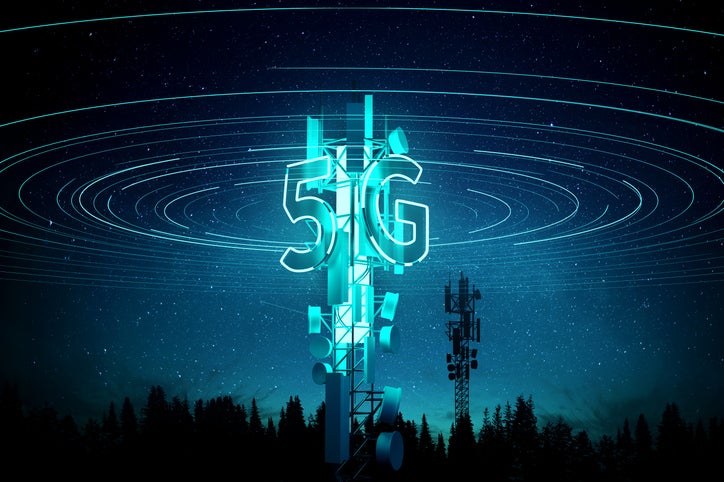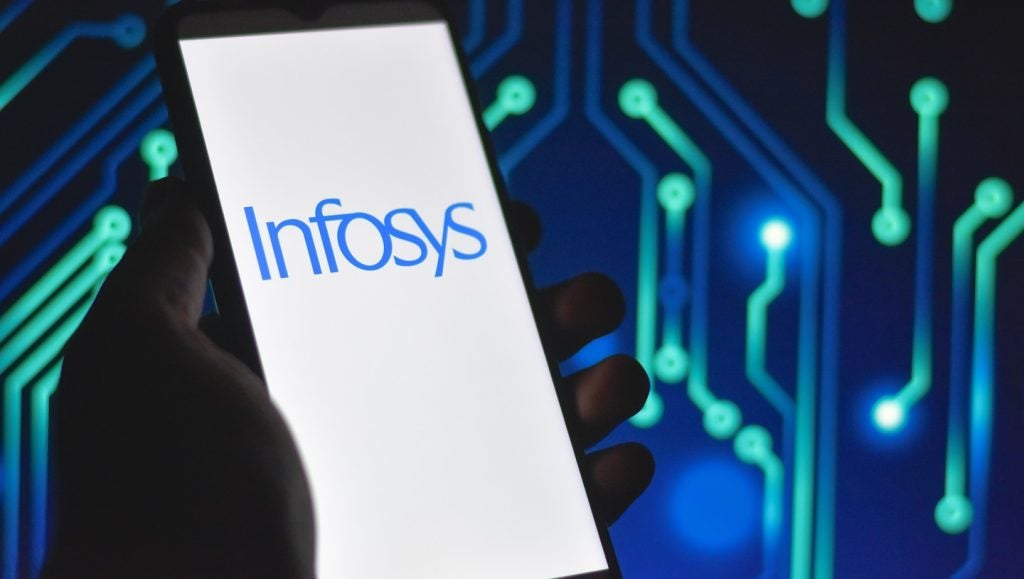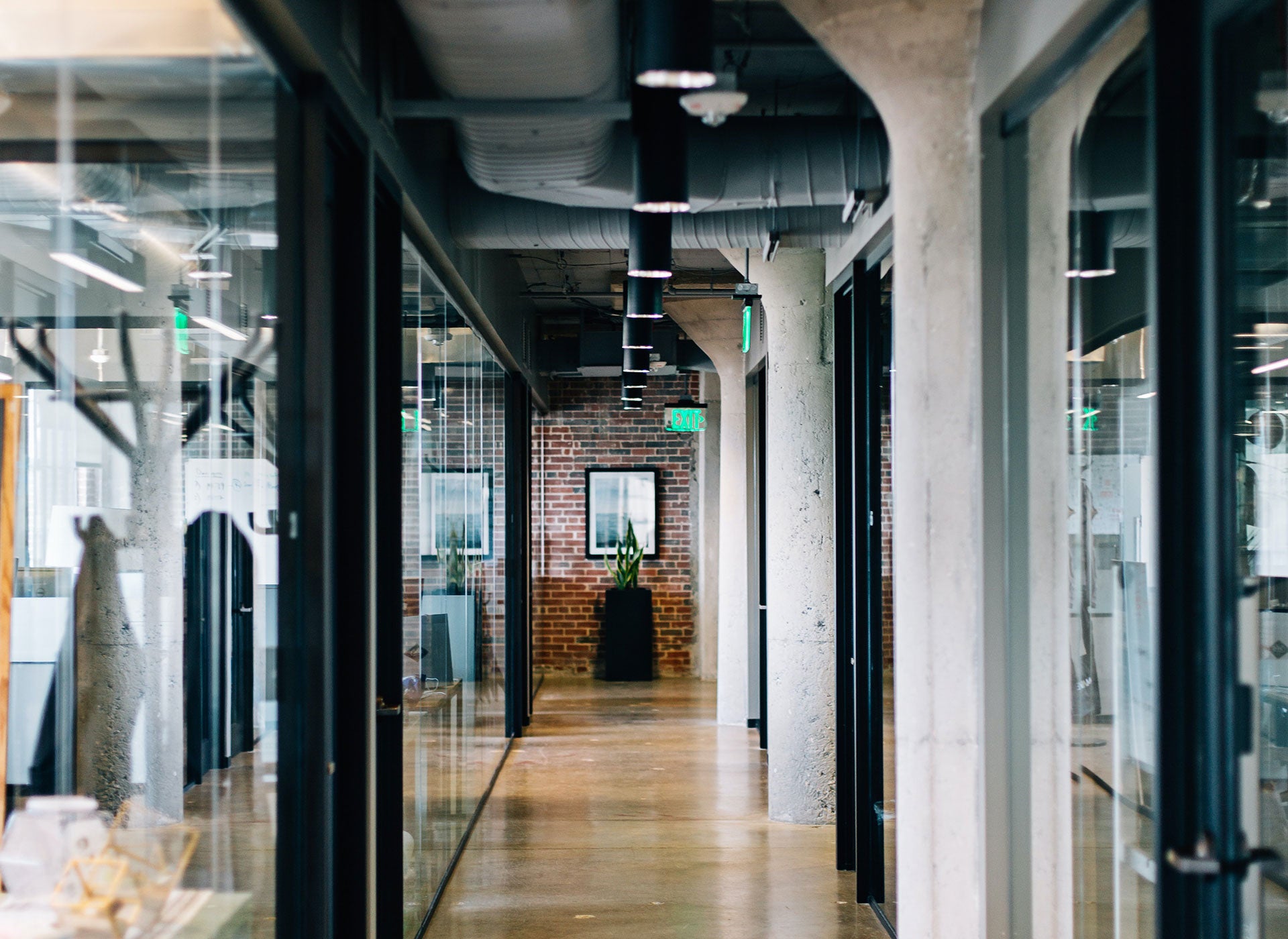
While many are opting for remote working, organisations that are re-opening offices are having to do with a plethora of new safety measures, embracing smart building technologies, including virtual doors, in the process.
This is because many are becoming increasingly aware that the Covid-19 pandemic is going to be a presence for many months to come – and that there may not ever be a clear point where things are ‘back to normal’.
“The office will not be the same for a long time, even those who have been opposed to home working are seeing that it will not change back to the old ways suddenly,” Paul Sheedy, founder of smart buildings technology company Unifi.id, tells Verdict.
“Cities that have managed to squeeze ever more people into highly leveraged transport systems, built ever higher buildings with faster but less lifts that have high occupancy levels, these are the very issues that will ignite second waves.”
For companies, then, there is an urgent need to rethink the office. And given the constraints of reality, technology is stepping in to help.
“Security, facilities management and sustainability issues will need new thinking, building owners will have to find ways to cut costs and technology solutions will be accelerated where a clear return on investment can be illustrated,” says Sheedy.
Pivoting smart building technology to combat Covid-19
To meet this need, many companies in the smart building technology space are reapplying their already broad product offering to the social distancing needs of a Covid-safe office environment.
Unifi.id is among these, having, says Sheedy, taken “some of the very specific solutions we had developed and realising that now, they are really very relevant to deliver against the ‘new normal’ scenarios that the built environment have to facilitate”.
Core to Unifi.id’s offering is its virtual doors products, which utilise RFID technology to provide touchless entry to both external and internal doors. This is a key part of efforts to reduce Covid transmission, with communal touch-points considered a key risk area.
And while these products were initially developed for other purposes, they are coming into their own amid the pandemic, providing an alternative to the wildly insecure option of simply leaving all doors open.
“Virtual doors were developed due to architectural constraints, but now have a very clear need,” he says.
“The sector is not in a position financially to just put more bodies in physically to check security passes and other issues that will now arise from the need to have doors left open. The security teams still need the same granular movement intelligence for proper due diligence.
“It’s more realising that the numerous technology breakthroughs have unusually become the answer to problems that had not been previously conveyed.”
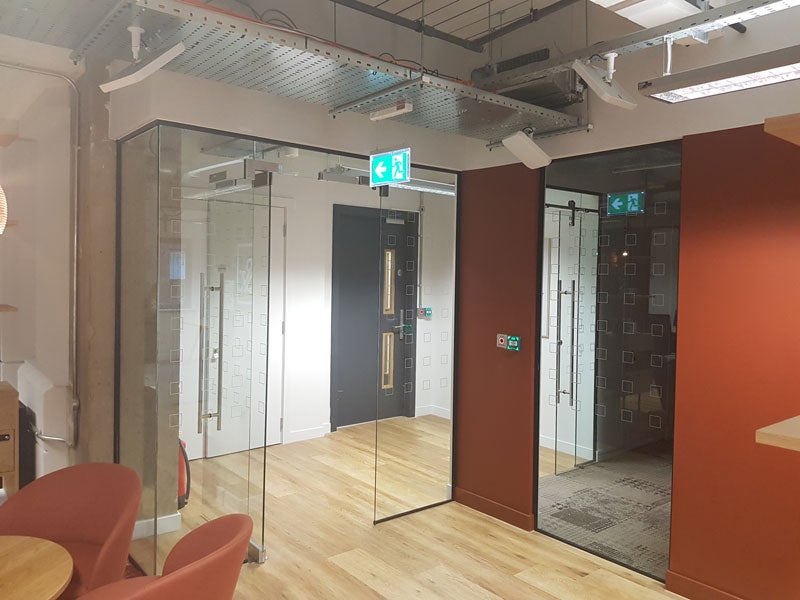
The technology behind virtual doors
The system is essentially a typical RFID setup, but has been finely tuned for the needs at hand.
“The technology works when a radio wave from our sensors, placed in key locations, is transmitted and energises a chip in the car,” says Sheedy.
“The chip is energised by the power being pulled in by our specifically designed antenna in the card, then the chip transmits its unique identify credential, it is picked up by the same sensor which of course confirms the card is within the location of the sensor. From there our software platform has been developed to trigger the correct action or alert.
“Many years have been spent on developing and resolving core issues around the specific frequency of RFID we use, it is a frequency that delivers longer range detections but when these cards are beside the body it tends to eliminate the transmission.”
Rethinking the office
The virtual doors system is part of a host of solutions that companies are exploring in order to make offices viable in a future that is not only marred by Covid uncertainty, but where pandemics are likely to be more commonplace.
“They are seriously worried about how their businesses are going to function as well as they did previously, but nobody really has all the answers because nobody really knows where the numerous segments of their workforce are assessing their lives, careers and willingness to manage their risks,” says Sheedy.
“It will be the very personal issues that each worker has, their household circumstances will all differ and this will impact how teams can work together.”
However, despite this uncertainty, he does not believe that an all-virtual approach is going to be embraced by many companies, but rather sees a move away from the excesses of the office that had been seen in the pre-Covid era.
“My feeling is we are fooling ourselves that we can base our businesses around the wonders of Zoom calls. Businesses like Unifi.id that are spread across multiple countries, where customers and partners globally expect to regularly ‘touch the flesh’ of executives who should be flying in to close deals with them, but the airline industry is as critically damaged as any sector,” he says.
“The office will not go back to being the ultra-sociable, ultra-designed, ultra-distraction-led places they had become recently, the office in many ways had moved from being a place to focus and work to a near Disneyland for adults in many cases; free beer, table tennis, etc. really had gone a little out of control.
“We are heading to a long period of very serious economic woe, offices will be the places where focus is intensified, not places of distraction and fun.”
Read more: Temperature screening robot to support reopening offices



